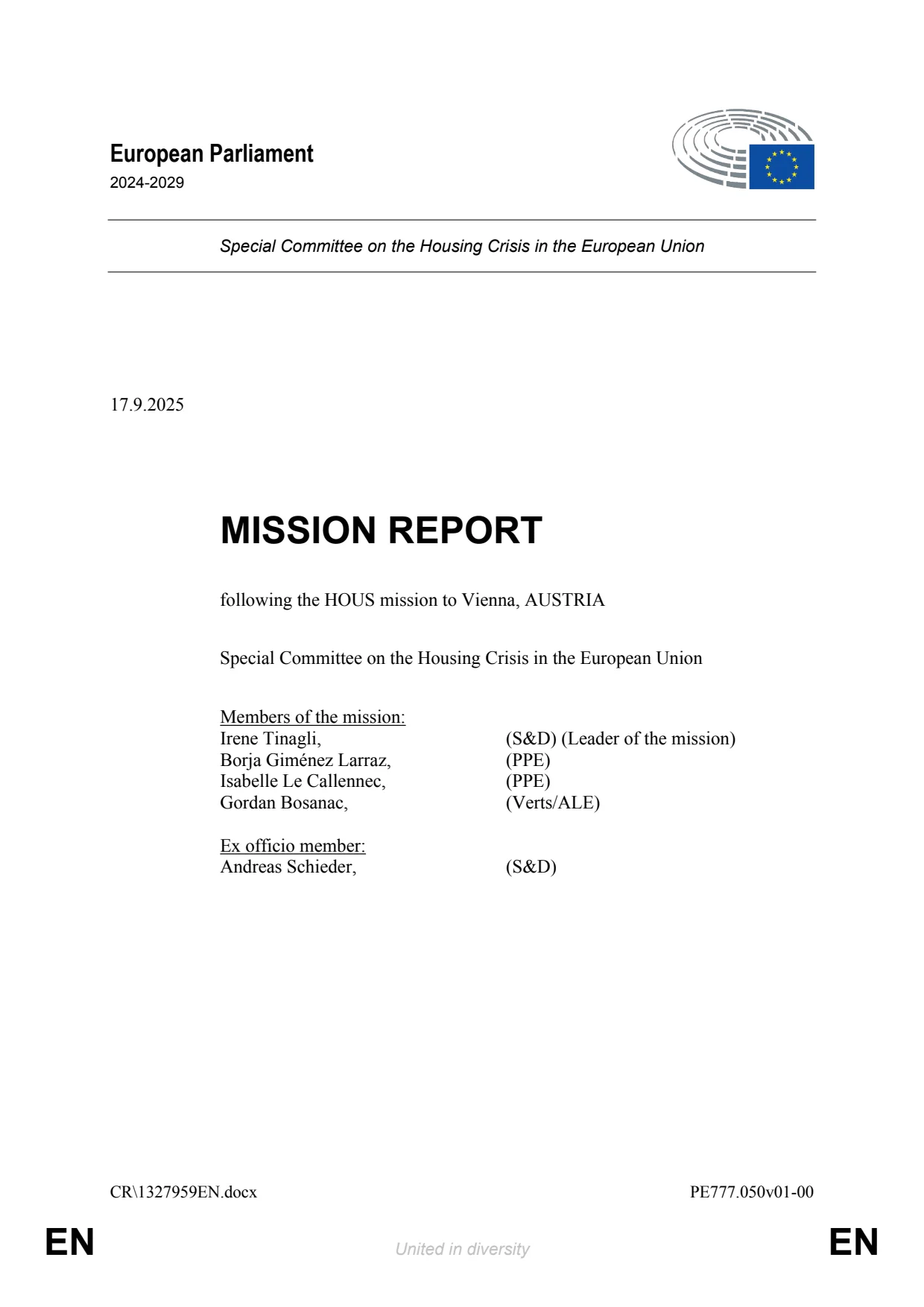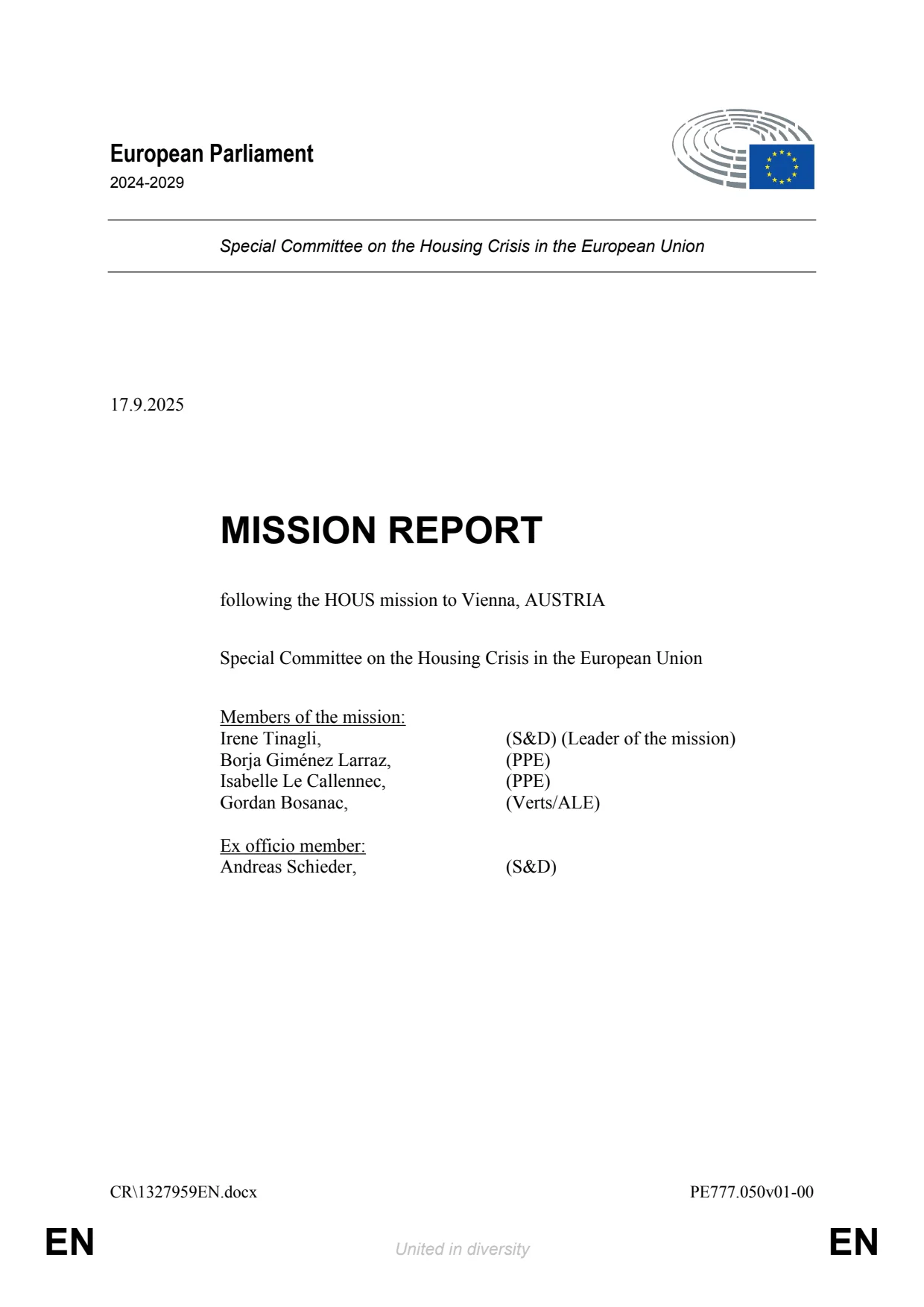AI-Generated Summary
Context and Overview
The report details a mission by the European Parliament’s Special Committee on the Housing Crisis in the EU to Vienna, Austria, aimed at understanding sustainable housing solutions. The mission comprised six members, including Irene Tinagli, the mission leader from the S&D party, and representatives from other political groups. The objective was to gather insights on the Vienna Housing Model, which is noted for its emphasis on social housing as a human right.
Key Findings on the Vienna Housing Model
The members explored the Vienna Housing Model, which supports over 75% of households benefiting from subsidized housing. This model is rooted in public ownership, with the city owning about 25% of the 800,000 rental apartments available. The delegation learned about the Nordbahn district, which is set to develop 5,000 apartments, with 24% designated as subsidized housing. This model integrates climate-friendly urban design, demonstrating a commitment to sustainable living.
Policy Discussions and Stakeholder Insights
Meetings were held with key stakeholders, including the Vice-Chancellor and Deputy Mayor of Vienna, who emphasized that housing should primarily serve as a human right rather than a commodity. The city’s policies prioritize social housing, ensuring access for low- and middle-income households. The delegation was informed about ongoing efforts to secure land for housing, with a requirement that two-thirds of new residential developments be allocated to subsidized housing.
Challenges in the Current Housing Landscape
Despite the positive aspects of the Vienna model, challenges persist. Rising housing costs and the proliferation of short-term rentals were highlighted as significant issues impacting the affordability of housing. The Austrian government has initiated 55 measures to stabilize housing costs, including capping rent increases and extending rental agreements. The delegation discussed the need for EU-level coordination to address these challenges effectively.
Site Visits and Practical Examples
The mission included site visits to several key housing projects, such as the Seestadt Aspern, designed to accommodate 25,000 inhabitants by 2032 while focusing on sustainable and resource-efficient living. This project showcases how urban development can integrate climate resilience and community resources. Additionally, the visit to the historic Karl-Marx-Hof highlighted the importance of communal facilities in social housing, demonstrating a comprehensive approach to urban living.
Collaboration and Future Directions
Discussions with economic stakeholders underscored the necessity of non-profit housing in stabilizing rent levels and promoting social cohesion. The representatives called for clearer definitions of affordable housing under EU regulations and highlighted the need for financial models that support sustainable housing initiatives. The report concludes that the Vienna model provides valuable lessons for other European cities in balancing public and private interests in housing policy.

